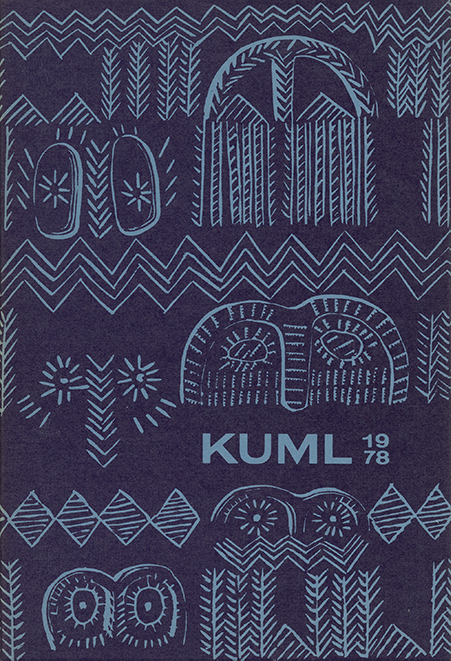Brovold – a fortified settlement from the early Middle Ages
DOI:
https://doi.org/10.7146/kuml.v27i27.106895Keywords:
Brovold, fortified settlement, early middle ageAbstract
Brovold - a fortified settlement from the early Middle Ages
At the base of Stavnsbøl Fjord on the west coast of Als is the fortified settlement of Brovold. In 1931-33 an area with the remains of small, rectangular houses, fireplaces and rubbish pits was exposed. New investigations were carried out in 1971-72 of the ram part and of the settlement area, yielding important new information.
The houses may be reconstructed as post and frame houses with corner fireplaces, of a type familiar from the early Middle Ages.
The rampart consists of a mound of clay, without any other support than a facing of turves on both sides. In front of the mound is a slight berm and a broad, flat-bottomed moat. This type of fortification accords well with the 11th and 12th centuries.
The c. 40 rubbish pits containing artefacts are the basis of the analysis of the pottery. No dating difference of any consequence between the different pits could be ascertained, which suggests a brief period of use for the site.
The most important artefacts have been examined and dated and Brovold seems to have been occupied from the middle of the 12th century to the early decades of the 13th.
Objects indicating cultural connections with surrounding areas are few, but Brovold has a clear connection with the rest of Jutland, where the spherical pot is the dominant form in the Viking Period and early Middle Ages.
Brovold has been considered in relation to town formation in the early 12th century, but the conclusion is that it had a somewhat different function, partly as a seasonal marketplace, partly as an important barrier on the road.
Jan Kock
Downloads
Published
How to Cite
Issue
Section
License
Fra og med årgang 2022 er artikler udgivet i Kuml med en licens fra Creative Commons (CC BY-NC-SA 4.0).
Alle tidligere årgange af tidsskriftet er ikke udgivet med en licens fra Creative Commons.


